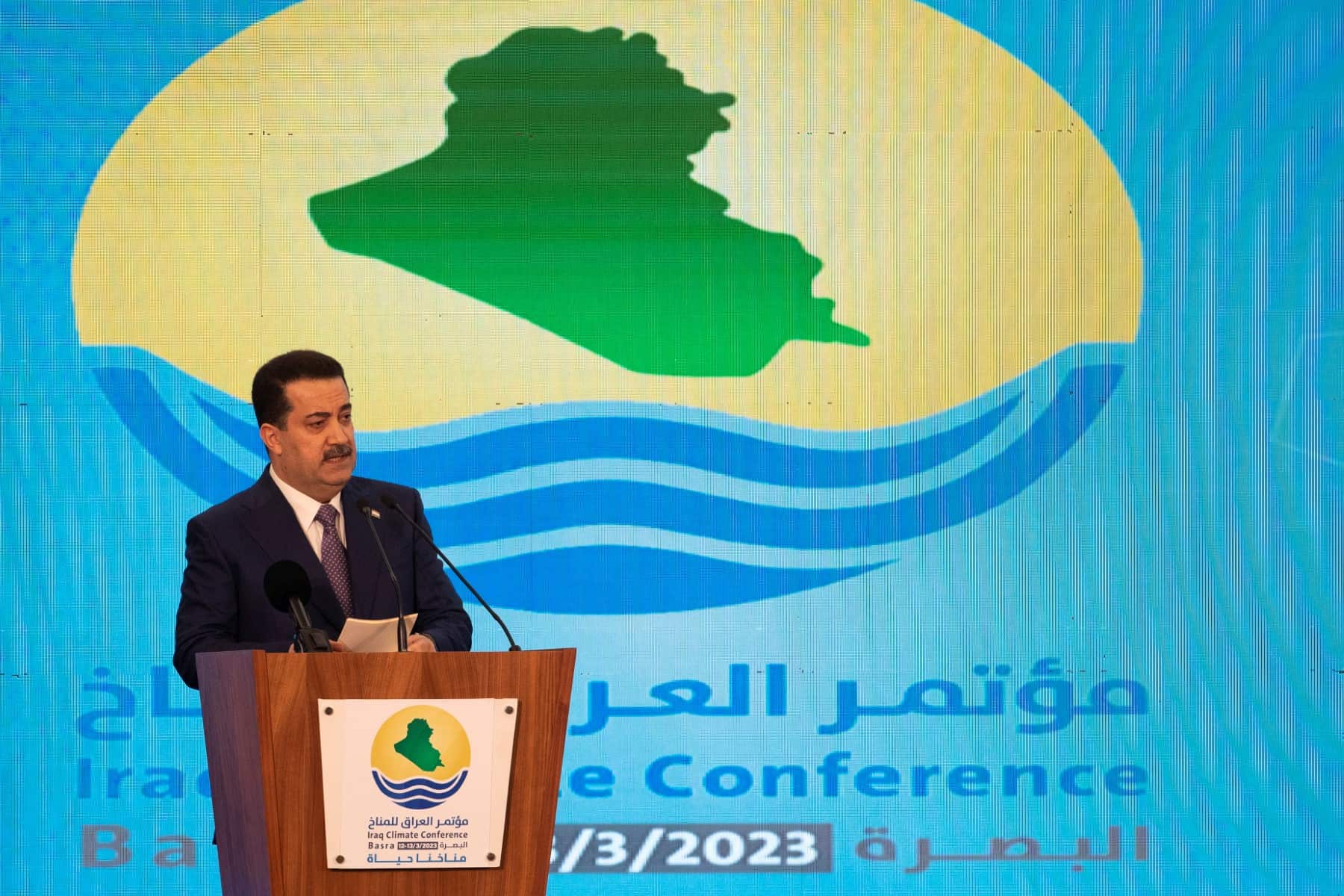BASRA, IRAQ – Iraq’s prime minister on Sunday announced a campaign to combat the severe impacts of climate change on the water-scarce country, including by planting five million palms and trees.
Oil-rich but war-battered Iraq suffers from extreme summer heat, frequent droughts, desertification and regular dust storms, problems that are all exacerbated by a heating planet.
Prime Minister Mohammed Shia al-Sudani told a climate conference that more than seven million Iraqis had already been affected by climate change and hundreds of thousands displaced by drought.
He cited challenges including “high temperatures, scarcity of rain and an increase in dust storms” as well as shrinking green spaces, which all “threaten food, health, environmental and community security”.
Sudani, who took office in late October, said his government was launching “a grand afforestation initiative, which includes planting five million trees and palm trees in all governorates of Iraq”.
In the spring of last year, Iraq was swept by about a dozen major sand or dust storms which blanketed Baghdad and other areas, causing breathing difficulties for thousands and forcing the closure of airports and schools.
Sudani said the government was working on a wider “Iraqi vision for climate action”, speaking at a conference in the southern city of Basra attended by foreign ambassadors and UN officials.
The plan would include promoting clean and renewable energy, new irrigation and water treatment projects and reduced gas flaring, he said, without announcing details on funding or timeframes.
Sudani said Iraq was “moving forward to conclude contracts for constructing renewable energy power plants to provide one-third of our electricity demand by 2030”.
Palm groves vs dust storms
Sudani also cited “efforts to preserve Iraq’s rights in the waters of the Tigris and Euphrates rivers”, the two mighty waterways whose flows have been reduced, with Iraqi officials blaming dams upstream in Turkey and Iran.
“The unilateral water control in the upstream countries increases the vulnerability of countries challenged by the effects of climate change,” the Iraqi premier told the Basra meeting.
As part of the wider plan, the government cited the creation of green belts around cities to act as windbreaks against dust storms, in a country where 39 percent of the territory is desert or affected by desertification.
Iraq was once dubbed “the country of 30 million palm trees”, but decades of conflict and failing public policies have ravaged the national symbol as urbanization has shrunk traditional green spaces.
Lush palm groves that once protected large cities such as Baghdad or Karbala have given way to concrete neighborhoods.
Sudani pledged that Baghdad would soon organize a regional conference to strengthen cooperation and exchange expertise on combating climate change and other environmental pressures.
“I call on friendly countries and all United Nations organizations to support us in facing the effects of climate change,” Sudani said.
Saudi Arabia, Iraq’s wealthy neighbor, in 2021 announced a plan to plant 10 billion trees on its territory within a decade, as well as to plant 40 billion additional trees in collaboration with other countries.








